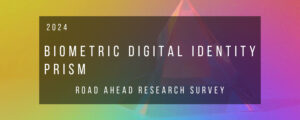Welcome to FindBiometrics’ digest of identity industry news. Here’s what you need to know about the world of digital identity and biometrics today:
FIRE Sues Over Utah’s Social Media
The US advocacy group Foundation for Individual Rights and Expression, or FIRE, has filed a lawsuit against Utah’s Attorney General and the Utah Department of Commerce’s consumer protection office over new legislation restricting minors’ access to social media platforms. Proposed means of verifying social media users are still under debate, and include the use of face biometrics. FIRE is concerned that the Social Media Act’s requirement for identity verification will have a chilling effect on free speech.
FCC Expands Data Breach PII Scope
The Federal Communications Commission has expanded its data breach reporting obligations for telecommunications carriers to include a broader range of personally identifiable information. As JD Supra explains, covered PII now includes “information that can be used to distinguish or trace an individual’s identity, either alone or when combined with other information that is linked or linkable to a specific individual.” And this of course includes biometric data. Carriers must notify the FCC, the FBI, and the Secret Service in the event of a breach, and must assess whether customers should be notified.
Another Virtual Try-On Service Escapes from BIPA
Furrer Inc. has prevailed against a lawsuit filed against its CliCliMe eyewear brand under Illinois’s Biometric Information Privacy Act (BIPA), concerning its virtual try-on tool. While Estée Lauder recently got a similar lawsuit dismissed for different reasons, the lawsuit against Furrer failed due to the fact that BIPA features exemptions for healthcare applications of biometric data collection. A US District Court for the Northern District of Illinois has ruled that eyeglasses and sunglasses should be considered medical devices since they are meant to improve vision.
State Bank of Pakistan to Require ‘Biometric Verification’ for Certain Currency Transactions
The State Bank of Pakistan is planning to require biometric identity verification from anyone trying to buy $500 in US dollars from currency exchanges, according to a new report. It is part of an effort to ameliorate a currency crisis in which low exports and remittances have limited the amount of dollars coming into the country while the need to import goods has led to US dollar outflows—all of which is serving to devalue the Pakistani Rupee against the dollar. Details concerning what kind of biometric IDV will be implemented have not yet been revealed.
La Liga Warned Over Facial Recognition Tender
La Liga, Spain’s top professional soccer division, has issued a tender for a facial recognition system that would be able to recognize match attendees who have committed crimes based on prejudice or intolerance. In response, the Spanish Data Protection Authority (AEPD) has warned La Liga that such a system will need to meet certain requirements concerning adequacy, proportionality, and necessity, noting that there would have to be a high-risk threat to justify implementing such a tool.
Trust Stamp Gets Notice of Allowance
Trust Stamp has received a notice of allowance for its patent “Systems and Methods for Liveness-Verified, Biometric Based Encryption.” In announcing this expansion of its IP portfolio, the company did not detail the particular systems outlined in the patent, but the filing’s application number, #17/401,504, indicates that it is distinct from another patent application concerning its biometric tokenization technology (#63/611,799) filed earlier this month. “Our liveness detection technology used in conjunction with our patented identity tokenization is designed to defend against the escalating occurrence of presentation attacks, explained Trust Stamp’s Chief Science Officer, Norman Poh.
–
January 19, 2024 – by Alex Perala









Follow Us